PBS NewsHour recently interviewed Malala Yousafzai, who has become a worldwide symbol for girls' empowerment through education. NewsHour Extra compiled resources to for teachers to address women and girls' empowerment throughout the developing world.
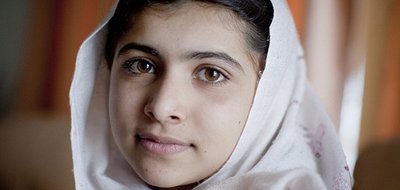
Pakistani doctors removed a bullet from 14-year-old’s Malala’s head. The Taliban shot the child campaigner in a horrific attack condemned by national leaders and human rights activists.
Malala, a 17-year-old Pakistani schoolgirl who dared to speak out against a ban on female education, was shot by gunmen who stopped a school van and tried to kill her.
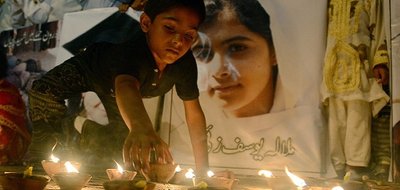 Arooj, a junior reporter from Youth Journalism International, recently wrote about the Pakistani public’s reaction to Malala’s shooting and the widespread backlash against the Taliban and their interpretation of Islamic law.
Arooj, a junior reporter from Youth Journalism International, recently wrote about the Pakistani public’s reaction to Malala’s shooting and the widespread backlash against the Taliban and their interpretation of Islamic law.
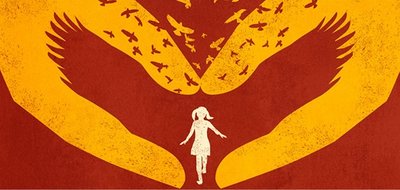 Girl Rising
tells the stories of nine girls from nine different countries and the power of education to change their lives. The accompanying curriculum provides teachers with a unique opportunity to educate students about the issues surrounding, and the impact of, girls' education in the developing world.
Girl Rising
tells the stories of nine girls from nine different countries and the power of education to change their lives. The accompanying curriculum provides teachers with a unique opportunity to educate students about the issues surrounding, and the impact of, girls' education in the developing world.
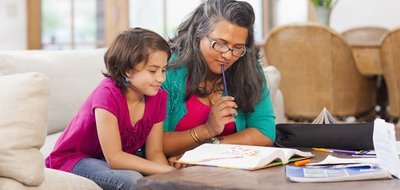 When girls are allowed to go to school, they have a significant impact on their family and community. In this lesson plan, students will learn and think critically about the variety of reasons why it is in everyone’s best interest to ensure that all girls, across the globe, have access to an education.
When girls are allowed to go to school, they have a significant impact on their family and community. In this lesson plan, students will learn and think critically about the variety of reasons why it is in everyone’s best interest to ensure that all girls, across the globe, have access to an education.
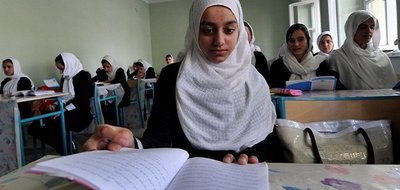
Periodic attacks occur against girls, teachers and their school buildings, usually in the more conservative south and east of Afghanistan, from where the Taliban draws most support.
More than 170 girls and women became ill at a school in northern Afghanistan after opponents to women’s education allegedly poisoned the school’s water supply, according to local health officials. The incident highlights the dangers women face in the country after American and NATO forces leave.
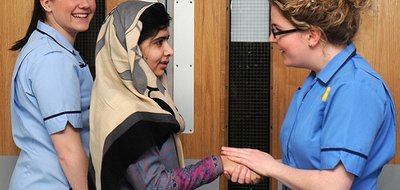 “Today you can see that I’m alive,” said Malala Yousafzai in her first interview since surviving a Taliban attack that left her with a bullet lodged in her skull.
“This is a second life,” she said. “And I want to serve. I want to serve the people. I want every girl, every child, to be educated."
“Today you can see that I’m alive,” said Malala Yousafzai in her first interview since surviving a Taliban attack that left her with a bullet lodged in her skull.
“This is a second life,” she said. “And I want to serve. I want to serve the people. I want every girl, every child, to be educated."
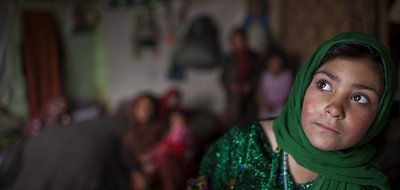 This lesson from the
Pulitzer Center on Crisis Reporting
investigates the daily struggle faced by many Afghan students seeking an education and the danger faced by teachers and schools working to provide these children with an experience many Americans take for granted.
This lesson from the
Pulitzer Center on Crisis Reporting
investigates the daily struggle faced by many Afghan students seeking an education and the danger faced by teachers and schools working to provide these children with an experience many Americans take for granted.
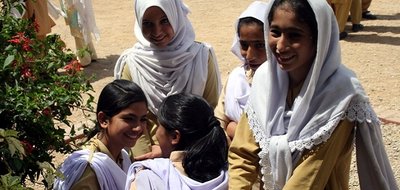 Pakistan is home to more out-of-school children than almost any country in the world, and there is more than the Taliban keeping the country’s young people from an education. This original reporting project from the
Pulitzer Center on Crisis Reporting
maps the hard road that lies ahead for youth in Pakistan and shows how the Taliban are one of many obstacles standing in the way of Pakistani families who want a decent education for their children.
Pakistan is home to more out-of-school children than almost any country in the world, and there is more than the Taliban keeping the country’s young people from an education. This original reporting project from the
Pulitzer Center on Crisis Reporting
maps the hard road that lies ahead for youth in Pakistan and shows how the Taliban are one of many obstacles standing in the way of Pakistani families who want a decent education for their children.
1. Video | PBS NewsHour Student Reporting Labs interview with Malala Yousafzai
Malala Yousafzai, a courageous young advocate for girls' education from Pakistan's Swat Valley, works to promote education for girls worldwide. Two years ago, Malala was shot in the head when men boarded her school bus and asked for her by name. She has recovered since and recently joined NewsHour to answer questions from Student Reporting Labs .2. Article | 14-Year-Old Girl Shot For Going To School in Pakistan

3. Student Voice | Pakistanis Stand With Malala

4. Resource + Lesson Plan | Girl Rising

5. Lesson Plan | Why Is It Important to Educate Girls?

6. Article | Attack on Girls School Marks Pivotal Moment for Women in Afghanistan

7. Article | Malala Devotes ‘Second Life’ to Girls’ Rights

8. Lesson Plan | Youth And Education in Afghanistan

9. Reporting Project | Education: Pakistan's Other Emergency


